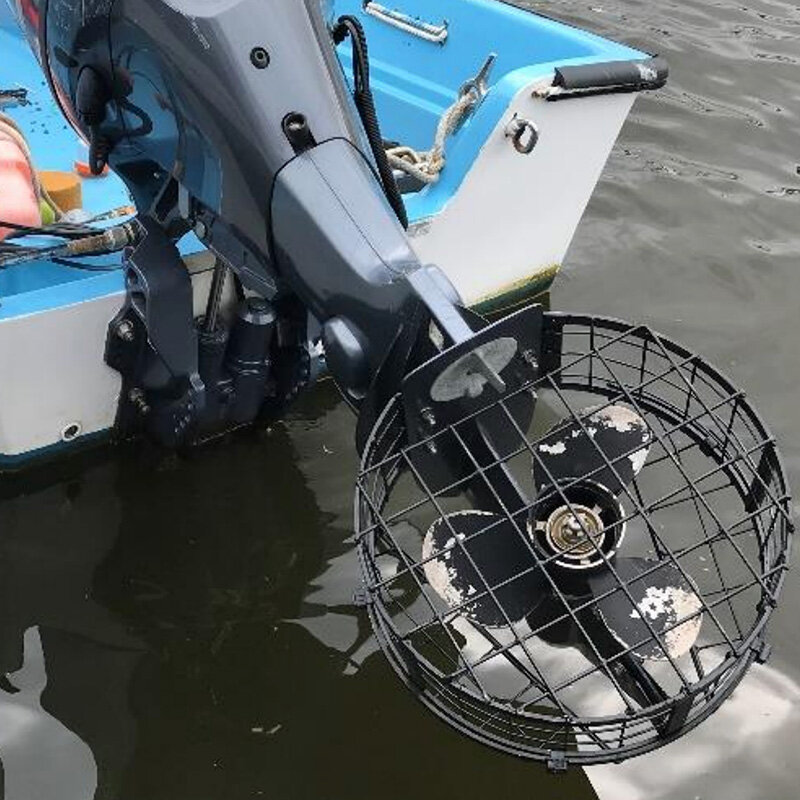Preventing Propeller Accidents: The Prop Guard Proposition
Unfortunately, these days it seems we more and more often hear of the tragic accidents caused by boat propellers, which if not bad enough, frequently involve young children.
As Bayside’s Assistant Squadron Educational Officer, while I continually find myself preaching proper training and safe boat operation, I still recognize that accidents do happen, and a fail-safe means to prevent propeller accidents is needed. With three children of my own spending their summers in a yacht club junior sailing program, I, like fellow parents, am greatly disappointed that such a solution is not in use.
While it may seem obvious that installing a protective cage, similar to that of a fan, around a boat’s propeller would prevent accidental contact, “prop guards” have been continually plagued by perceived flaws which prevent the use of these lifesaving devices. This predisposition is most often based on the misbelief that while prop guards minimize the likelihood of accidental contact, they also minimize water flowing past the propeller, thereby resulting in greatly reduced steering and boat control. While physics mandates that propeller guards reduce water flow, the surprising truth, as I have been told by prop guard advocates, is that if designed correctly, there is no noticeable impact on boat performance other than limiting top end speeds.
Could this possibly be true? Could the boating community be misinformed? Could a solution we have had available to us, but have chosen not to use, actually work and save lives?
To answer these questions, a prop guard providing full 360 degree protection (front, sides and back of propeller) was installed on a typical sailing coach boat, a 17’ Boston Whaler w/ a 50 HP Yamaha outboard motor. This boat was then used to perform a series of tests based upon a procedure generated by the American Boat & Yacht Council (ABYC) for the United States Coast Guard. Specific performance criteria, including acceleration, turning radius, holding a course in forward & reverse, emergency braking and boat speed was evaluated. These tests were performed, under different sea and wind conditions, by numerous highly qualified boating professionals, including certified powerboat instructors & operators as well as accredited sailing program directors & coaches.
Across the board, the findings were unanimous, there was absolutely NO noticeable impact on boat performance during any of the maneuvers performed. The only effect of the prop guard, which provided the maximum level of protection, was a reduction in top speed from approximately 23 MPH to 17 MPH.
So, while not necessarily a solution for all, as propeller guards might not be appropriate for high performance boats, propeller guards do appear to be the perfect fit for boats like those used in junior sailing programs where the additional safety gained is more important than the high speed lost.
By Seth Cirker
First Lieutenant, N-IN, United States Power Squadrons
Seth Cirker is a technology consultant, avid boater and United States Power Squadrons officer. He and his family reside in Port Washington, NY and can be frequently found sailing their sloop Casamar on Long Island Sound. You can find Seth on LinkedIn.

